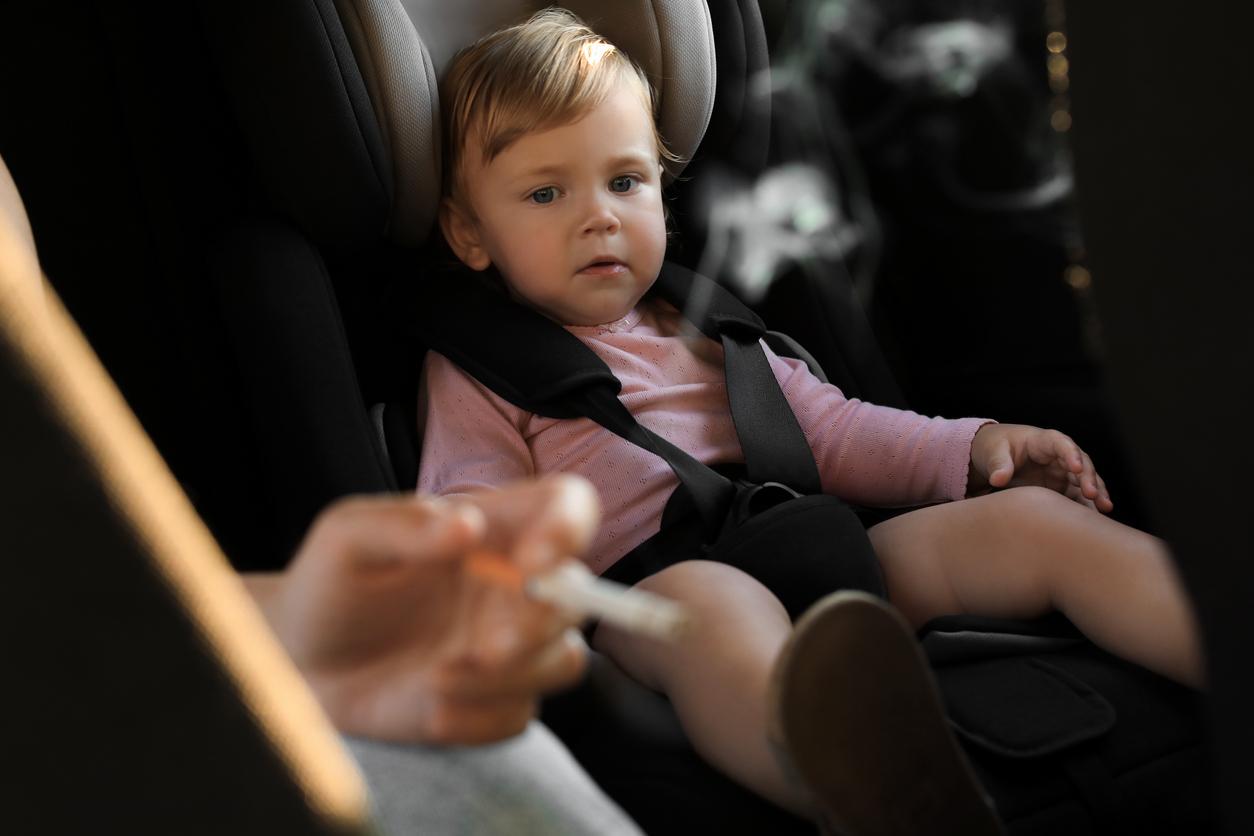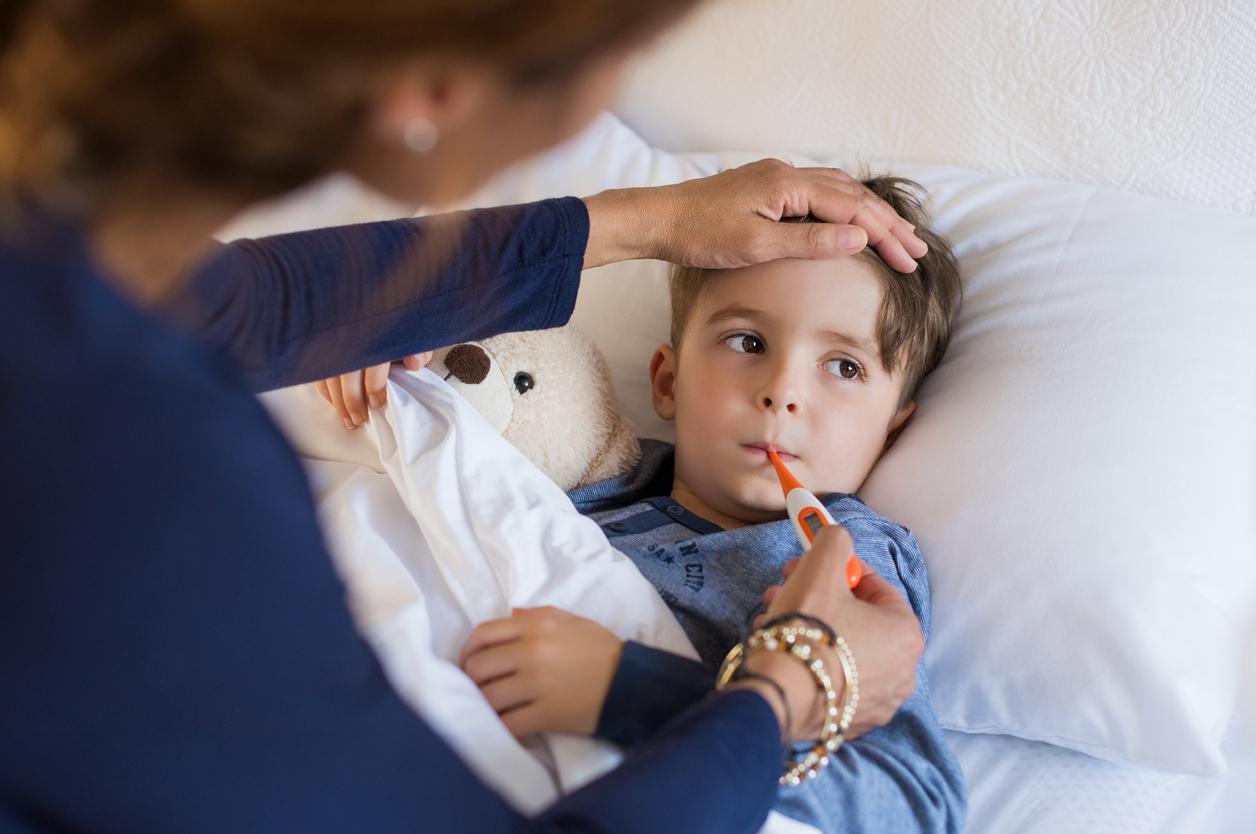While the Covid-19 health situation is improving, Santé Publique France underlines in its epidemiological bulletin of February 9, that the flu epidemic is not over. It is even intensifying in several regions, particularly in the South-East and Ile-de-France.
“Emergency visits and hospitalizations are also increasing,”especially in children under 5 years old“, emphasizes Public Health France.
There flu is a viral infection caused by the influenza virus. It is a seasonal disease that begins around November and lasts until late February/early March, with a peak in late December/early January. “Like SARS-CoV2, the virus responsible for Covid-19 and like RSV, the one responsible for bronchiolitis, it is an airborne virus“, explains Dr. Vaucan Gitto, pediatrician. The flu is therefore a contagious illness which is easily transmitted. Wearing a mask since the start of the Covid-19 pandemic has, however, made it possible to observe a significant decrease in cases of influenza. The epidemic was shorter and less dangerous.
“We only do a nasopharyngeal test to look for the virus if the child is hospitalized and in the case of severe forms, but the flu is very common in children. It is even the third virus responsible for bronchiolitis in children under one year behind RSV and rhinovirus.“, reminds the pediatrician.
Flu symptoms: how to recognize them?
The symptoms will be different in the small baby and in the child. “In babies under six months old, there are rarely high fevers. It is rather a classic picture of bronchiolitis with low fever and respiratory symptoms in the foreground: nasopharyngitis, cough“, explains Dr. Vaucan Gitto. In older children, symptoms are similar to those in adults with high fever in the foreground. “There is a high fever with chills, cough, headache, body aches, runny nose. The fever is high from the outset before decreasing and then generally rising to 39 after 48 hours, this is called flu V“explains the pediatrician. The flu lasts about seven days.
My baby has the flu, is it an emergency?
“A fever in a three-month-old baby requires an emergency consultation”, recalls Dr. Vaucan Gitto. After three months, we still observe the “CCR” for Coloring / Behavior / Respiration. “If the child is well colored, that his behavior is normal as well as his breathing, we only consult after 48 or 72 hours of fever. If, on the other hand, we have an attack on one of the criteria of the “CCR”, we consult your doctor during the day or go to the emergency room if the pediatrician or the general practitioner are not available during the day”, advises the doctor. Complications are possible but very rare in children: secondary bacterial respiratory infection, poorly tolerated fever and in extremely rare cases neurological problems such as encephalitis.
The treatment of the flu: we do not give antibiotics!
The treatment for the flu is quite simple: fever is treated with doliprane, sometimes anti-inflammatories if the fever is poorly tolerated and only after consultation with a doctor. Nose drops can complement the treatment. Antibiotics, on the other hand, are useless because it is a viral disease. “When the child has a fever, it is not the number that we will look at but the tolerance to the fever. We do not give a bath, at the risk of causing the child to convulse, but we leave him in a diaper or in a bodysuit. You can apply a damp cloth to the forehead and extremities and give a doliprane. Then watch the child, give him water and rehydration solution to drink. If the fever is poorly tolerated, you must then consult urgently.”
Flu vaccine: should children be vaccinated?
There is a very effective vaccine against the flu virus, but it is not routinely prescribed for children. “It should be done in children with asthma or who have an immune deficiency. But also, for example, in children who live with their grandparents or in contact with fragile people., recommends the pediatrician who adds that vaccination is however essential for adults. In children, two doses are given the first year for those under seven years old, then one dose from seven years old and subsequent vaccinations.
Thanks to Dr Vaucan Gitto, pediatrician.
Read also:
- Baby fever: when to go to the emergency room?
- Baby otitis: how to recognize it?
- How to blow your baby’s nose?

















